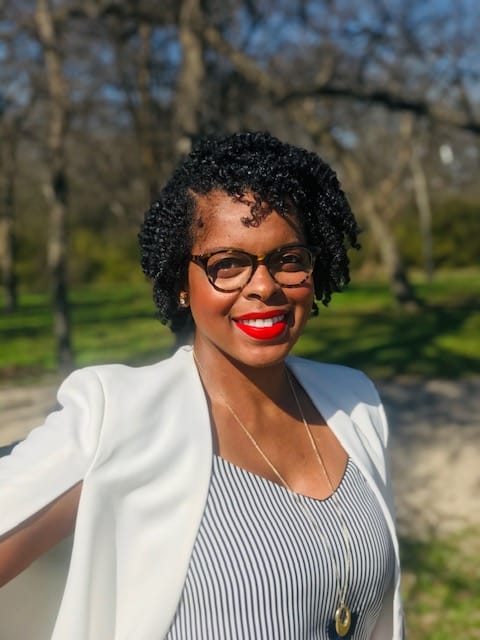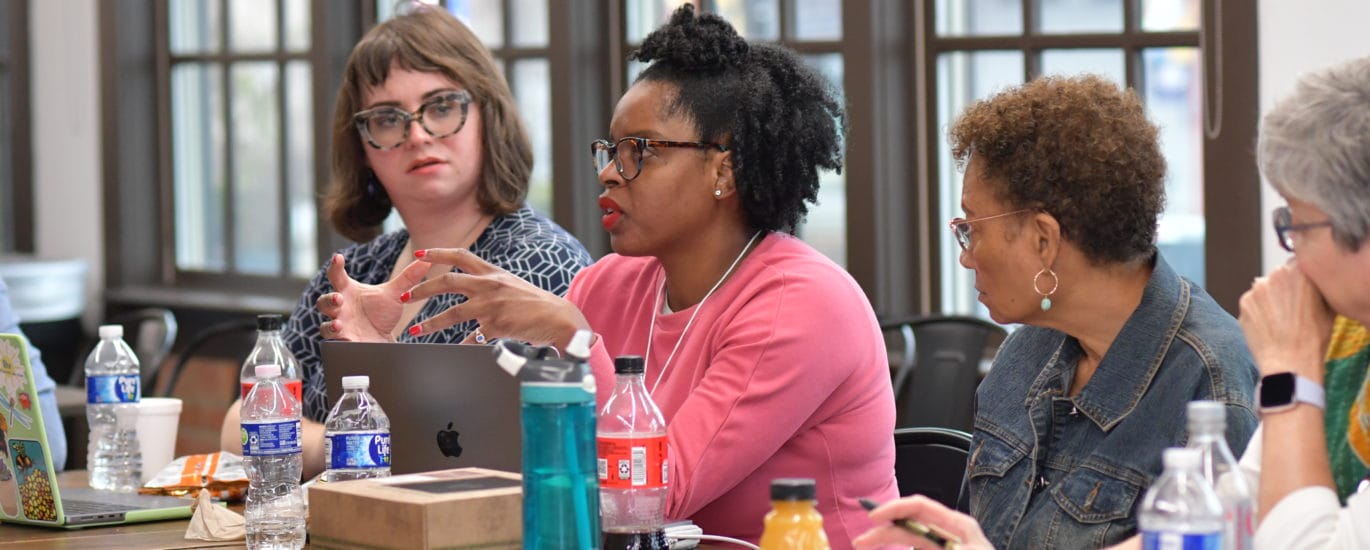By Aretha Flucker
I spent the majority of my childhood in the Deep South—in a small town named Goodwater, Alabama, to be exact. Being in the South, it was customary for children to address adults with “sir” or “ma’am.” However, for some reason, I never felt the inclination to address anyone in this manner. My parents, siblings, and I had spent many years on the East Coast in a much more liberal state, New Jersey. So, I always wondered if perhaps it was this element of my journey as a child that made it uncomfortable for me to say “sir” or “ma’am” to my teachers and other adults I encountered. My parents never pushed it, so I went through my childhood never addressing anyone in this way. Even when people had the expectation of receiving those words from me, I was confident in ignoring their expectations and going on about my business. I never quite put my finger on my unwillingness to use those words. As I became an adult, I continued to be intentional about never using them. In fact, when I heard those words I cringed.
Now, many years later, I believe I have discovered the root of my dismay and inward protest. While visiting the Equal Justice Initiative’s (EJI) Peace and Justice Memorial Center in Montgomery, Alabama, I was touched deeply by the countless stories of lynching. So many of my people who lived before me had succumbed to the hatred, ignorance, and violence that pervade this world. These stories were peppered with preposterous accusations that resulted in the lynching of Black children, men, and women. They are stories that chronicled a “Karen” accusing a Black man of looking at her, walking too closely to her, walking by her window while she bathed, asking to use a bathroom, asking for a drink of water, using inappropriate language, or kissing her hand. There were also stories that parallel contemporary acts of lynching such as that of George Floyd, and a Black man was lynched in 1896 for being wrongfully accused of having counterfeit money. The fate of each of those accused was filled with humiliation, violence, suffering, pain, and ultimately, death.
As I read each of these stories and my heart felt pain beyond what should be possible, I was drawn to one narrative in particular. One man was lynched for not addressing a white police officer with “sir.” I stopped and spent the next few moments with his story wondering why that story hit so close to home for me. Then, I understood. My own ancestors and the Black people who lived in a time of overt discrimination and racism were forced to use those words whenever they addressed any white person—even children. In this moment of profound discovery, I knew that there was something in my blood, something in my genetic composition, something that profusely protested the use of those words. So many who came before me did not have the opportunity to protest; however, I realized that all of the cells in my body carry that protest inside me. Even if I wanted to ever speak those words, my body would not allow it. My body knows and carries the pain and trauma of my ancestors, and without any hesitancy it refuses to relive that trauma.
There is a precedent for this bodily experience in inherited, multigenerational, or intergenerational trauma. The American Psychological Association defines intergenerational trauma as “a phenomenon in which the descendants of a person who has experienced a terrifying event show adverse emotional and behavioral reactions to the event that are similar to those of the person himself or herself.” Much of the study into the occurrence has garnered the conclusion that trauma actually transfers genetically because traumatic events alter one’s genetic composition. As those genetics are transferred to the children of those who lived with slavery and in the violence of a country built on racism and exploitation, their children’s genes have an inherited disposition to traumatic events similar to those our ancestors experienced. In short, my genes know to refuse to speak words that diminished the humanity of one to create the superiority of another. As my ancestors would say, “They know better!”
As I sat with all of these revelations at all of the EJI memorials, I continued to be hurt and affected deeply by the acts of government-sanctioned racism that have survived to infiltrate our current justice system. However, the story of the Black man being lynched for refusing to say “sir” stayed with me. The visceral reaction my body has always had to the word stayed with me. All of these things were brewing inside me, and my feelings of pain shifted to feelings of pride. I began to feel even more proud and rooted in my people’s history. I contend with racism and sexism on a daily basis, and sometimes I have to do some soul searching to determine how I will confront them. Sometimes I choose to ignore it, others I choose to name it, and sometimes I honestly do not know what to do. Now I know that even when I do not know, my inherited genetic material will always have the answer. My body will respond by guiding my movements. My mind will go into an automatic response as it processes microaggressions and other displays of foolishness that racists and sexists thrive on. My work is to trust what my instincts and body are saying. My work is to not allow into my psyche internalized racist thinking that, I, as a Black woman, am somehow less qualified, intelligent, equipped, or talented. To the contrary, I am intelligent, strong, witty, qualified, and empowered to hold space and agency in any environment.
Visiting the Legacy Museum and the National Memorial for Peace and Justice was certainly not without challenge. My time there was heavy, and the tears I tried to hold back often forced their way down my face. America’s history cannot be ignored or reimagined to minimize the atrocities of the past. We cannot remove the trauma that we have inherited. What we can do is embody justice by truly committing to the Alliance’s antiracist work. It will mean our churches becoming deeply uncomfortable and our organizations undergoing restructure. It will mean empowering Black Indigenous People of Color to lead in arenas where we have not had access to equity, and it will mean compensating us comparably to our white colleagues in those arenas. It will mean doing a new thing so we can collectively bear good fruit. I leave you with this question and invitation: How will you, as you finish reading this article, commit anew to building an antiracist world in which all of God’s people not just exist, but thrive?

The Rev. Dr. Aretha Flucker joined Brite Divinity School in 2020 as its first Director of Community and Spiritual Life. Rev. Dr. Flucker’s ministry has focused on spiritual formation, social justice activism, leadership development, and community empowerment. A preacher, she has served within communities of faith in New York City, NY and Humble, TX. She is excited to continue to help shape communities of faith and was named the Director of Baptist Studies in 2021. Rev. Dr. Flucker received her Doctor of Ministry degree in Transformational Leadership at Boston University’s School of Theology in May 2022. She centers her ongoing research and consultancy work on reimagining the church with a hybrid model amid a decline in attendance and engagement. Rev. Dr. Flucker currently serves on the Alliance of Baptists’ Board of Directors and contributed a book chapter, “Reimagining the Cross: Jesus, a Womanist Co-Sufferer and Co-Conspirator” in the Alliance’s Taking on the Cross (Nurturing Faith Books, 2022).




Recent Comments